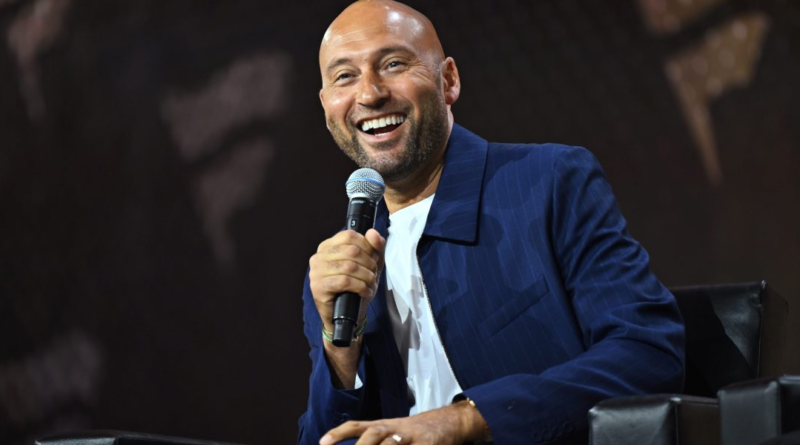MLB legend Derek Jeter’s business advice: You can’t be an expert at everything
When Yankees legend Derek Jeter hung up his cleats after 20 years in the major league, he knew he wanted to make a foray into business. It’s a common second act for athletes; making investments, embarking on philanthropic missions, and founding companies are some of the most popular routes for the newly retired workers with a competitive mentality. (Another common avenue these days: real estate.)
So when Jeter, the legendary All-Star shortstop, turned his attention toward the business world, he knew what he needed: mentors.
“Got to have mentors,” Jeter told Fortune on Friday after a main-stage appearance at the Fanatics Fest convention in New York. “You have to reach out to people that have had experience in a particular field.” The same goes for being an athlete, he added: “You learn from coaches that have had experience. And I think when you have mentors, you not only learn from their success, but you learn from their failures.”
Jeter didn’t call out any particular athletes turned businesspeople, which might be because his path is entirely singular.
Three days after retiring in 2014, he announced his new website, the Players’ Tribune, which he billed as a platform for athletes to connect directly with fans, sans intermediary or Twitter’s 140-character limit at the time. The Players’ Tribune was initially dismissed as a classic vanity project, Fortune’s Michal Lev-Ram wrote in 2017, but its all-star user base and Silicon Valley investments gradually produced momentum and legitimacy. Kevin Durant, for instance, announced his contract with the Golden State Warriors via a Players’ Tribune essay in 2016.
In the years since, the former Yankee also served as CEO and partial owner of the Miami Marlins baseball team, launched the Jeter Publishing imprint at Simon & Schuster, joined the board of Rockefeller Capital Management, and became a founding partner of virtual trading card company Arena Club—which is what brought him to Fanatics Fest.
Jeter, who earned an eye-popping $265 million during his years in pinstripes, doesn’t find use in comparing his shortstop years to his businessman years.
Asked to what he ascribes his second-act success, Jeter demurred. “I never look at it as success; it’s sort of like the same thing [as] when I played,” he said. “You keep setting goals that are higher and higher. There are successes along the way, but you still stretch and you still reach for the stars, so to speak.”
As for the success of his ventures, he says he’s been “blessed” to be surrounded by supportive, smart colleagues. “I’m very good at knowing what I don’t know, and I think you surround yourself with people that are experts in their particular field, because you can’t be an expert at everything, but you can surround yourself with people who are experts in particular fields,” he said.
“People always ask about sports and business; there are a lot of parallels,” Jeter said. “There’s setting goals, there’s work ethic, there are teammates, there’s accountability, there’s responsibility.”
But the biggest similarity between the two worlds—“I keep saying it over and over”—is the team. “You don’t have success by yourself,” he said. “You can fail by yourself, but you don’t have success by yourself. So I think it all boils down to having great teammates.” Spoken like a true team captain.
With a grin, he added one final postscript: “And I think I’ve been a part of some great teams.”




